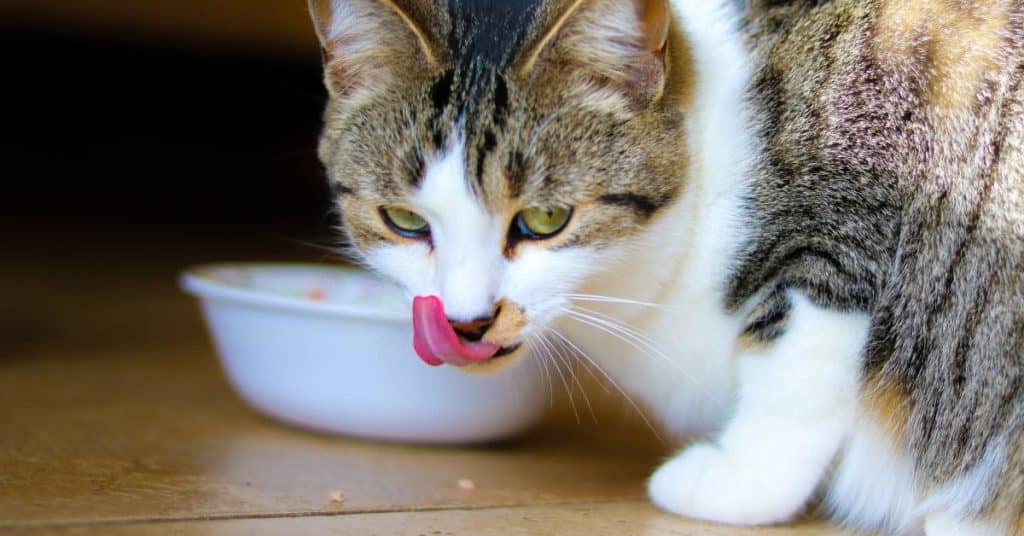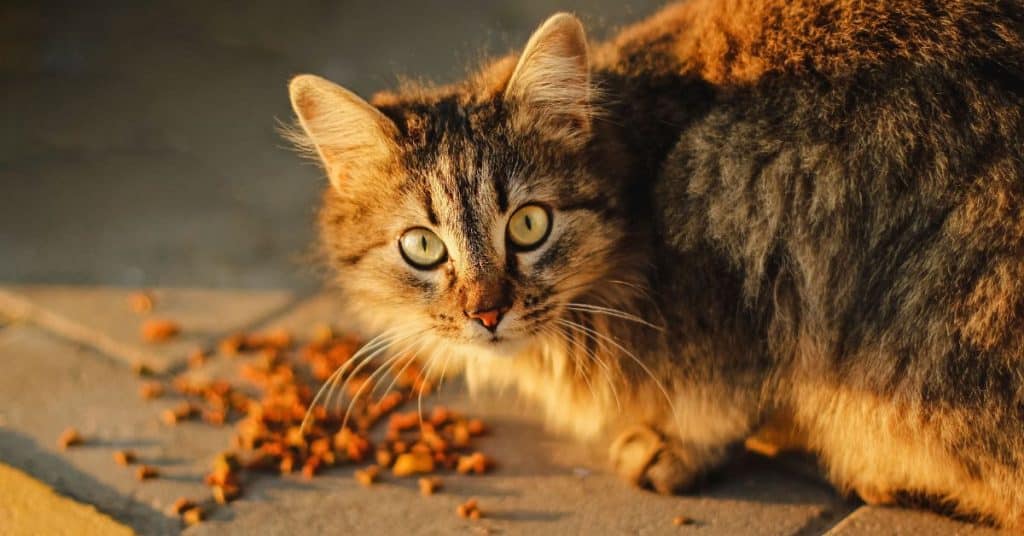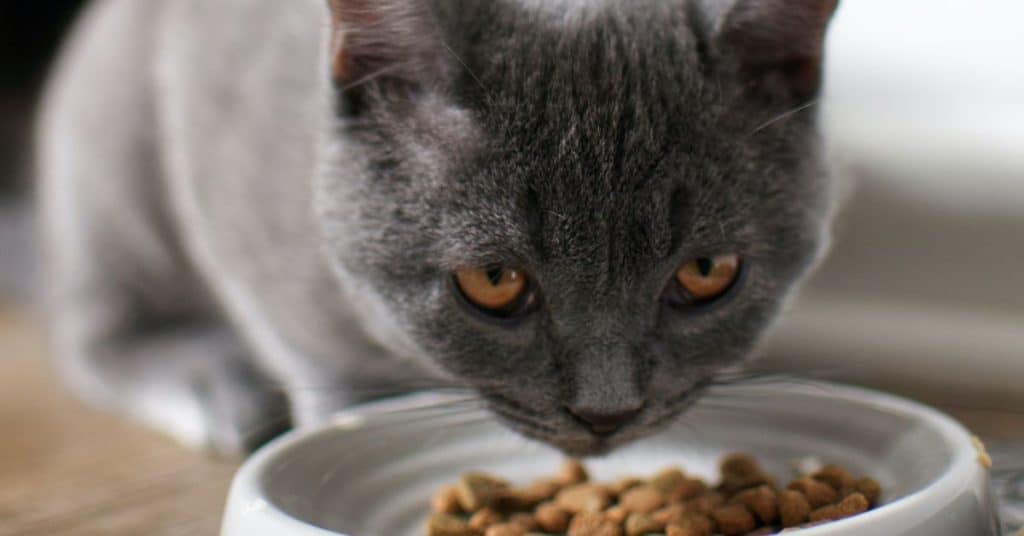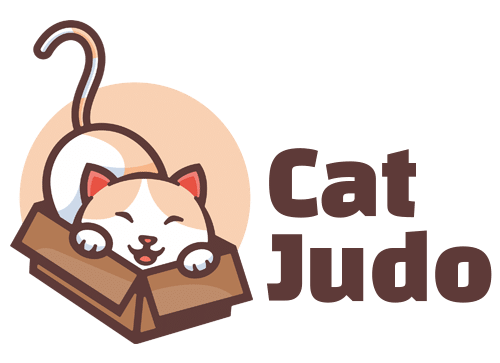Get the information you need about senior cat foods in one place. Our comprehensive resource provides all the details of senior-friendly cat food!
Senior Cat Foods: The Ultimate Guide
A one-size-fits-all approach isn’t the best approach when it comes to cat food. Growing and developing kittens need more protein, fat, and calories than adult cats-the focus shifts to maintaining a healthy weight once they reach adulthood.
So, when your cat matures, what happens?
Cats’ energy requirements decrease between the ages of 4 and 9 years. You can expect your cat to gain more weight if it declines. The calorie requirements of your cat may increase once they reach the age of 10 to 12 years old. The loss of muscle mass and growth of fat could result in your cat becoming overweight.
This article aims to provide an overview of senior cat food and some of the best options on the market for this type of food.
Let’s get started!
What Is “Senior” Cat Food?
It turns out that senior cat food is not all that different from everyday cat food because AAFCO’s nutrient profiles don’t differentiate between “adult” and “senior.” Senior cat food is simply a modified version of adult food.
Senior foods’ protein and fat content have historically been low, and fibre levels have been higher. It is up to the cat whether to require these dietary modifications.
Senior Cat Food: When to Switch
Do cats need a “senior diet” at a certain age?”
There’s no way around it. Cat veterinarians may have different recommendations based on their individual needs. In the case of older cats, there is no need to alter their diet if they are maintaining their body weight and muscle condition. Generally, feeding a ‘senior’ type diet or a diet with lower energy and higher fibre may be recommended if they gain weight without any underlying health problems. When losing weight without obvious health reasons, such as a change in metabolism, a calorically dense diet such as kitten food may be suitable.
It’s imperative to note that a cat might need a diet change if they develop a medical condition such as diabetes or chronic kidney disease. This can be managed with a diet change.

Other Factors to Consider
It is essential to choose a food for your senior cat that will maintain their health and ideal body weight, slow or prevent chronic illness, and mitigate the symptoms of any pre-existing ailments.
Besides taste and texture, other factors matter as well. Nutritional quality is less critical to cats than these features.
- Smell and taste – Cats need to develop a sense of taste as they grow older since their senses begin to wane. Generally, wet foods are more palatable. In the early years of their lives, they develop a wide variety of preferences. Likely, cats will not accept a change from dry food to canned food if they have eaten dry food for their entire lives. You can avoid this by – providing various flavours and companies at a young age.
- Ease of digestion – A cat is designed to digest protein, not carbohydrates, so digestion is key to nutrient absorption. Ask your vet what foods would be better for your cat if he throws up food.
- Texture – A food’s texture also matters. Some older cats with missing teeth prefer wet food or kibble softened with warm water. Nonetheless, some can still chew on crunchy food.
- Amount of moisture – It has also been found that cats prefer food with higher moisture content. They need a diet that mimics freshly caught prey, which tends to be moist since they are carnivores. Due to cats’ nature as carnivores, feeding them a diet miming their natural eating habits as closely as possible is essential. Cats with urinary tract issues benefit from moistened or wet food as it is richer in water.
It can be frustrating to find food that has the right taste, texture, water content, and nutrients can be frustrating. The situation is even more challenging when you have a picky senior cat. It’s best to consult your veterinarian.
Senior Cat Foods for Common Issues
The following are some underlying health issues that may be managed by diet in senior cats. Be sure to consult your veterinarian about the root cause of your pal’s health problems before changing their diet.
- The time may have come to switch your feline’s diet to one higher in protein if he loses muscle. In the absence of disease, feeding a low carbohydrate and high protein diet may be beneficial.
- A couple of options are available to pet parents who want to lose a few pounds on their overweight senior cats. Traditions and historical practices have employed a high fibre, low fat, low-calorie diet to induce an energy deficiency, mobilise fat, and lose weight. Nonetheless, many people are now eating a metabolic shift diet consisting of high protein, low carbohydrate foods, similar to eating prey.
- You may want to feed your senior cat a diet high in antioxidants and healthy fats if they are experiencing memory problems or exhibiting senile-like behaviours such as staring into space, altering sleep cycles, meowing loudly or disorienting at night.
- Older cats often have trouble eating and drinking enough. Before experimenting in the kitchen, make sure that no medical issues exist.
Top Senior Cat Foods
A wide range of senior cat foods is available today, so it’s hard to pick the best one for your furry companion. What’s the best-wet cat food? What needs to be eaten for healthy skin? How about grain-free cat food? What about those with fewer calories? Choosing the proper diet for an ageing cat can be challenging.
Your veterinarian can advise you on the best food for your senior cat based on their specific needs and your budget. However, here are a few of our recommended options:
Now Fresh Grain-Free Senior Weight Management Recipe Dry Cat Food
You might want to purchase this protein-packed dry food if your senior cat needs to lose a few pounds. This is a zero-grain formula crafted with turkey, egg, salmon and duck, spinach, cranberries, blackberries, pumpkin, lentils and carrots. As well as omega-3 and omega-6 fatty acids for a smooth and shiny coat, the recipe contains vitamins, minerals, and amino acids cats need in their diets. Moreover, the food is also probiotic-enriched to enhance digestion and nutrient absorption.

Royal Canin Appetite Control Spayed/Neutered 7+ Dry Cat Food.
Spayed or neutered cats might gain weight if they’re not exercised much. This diet explicitly formulated for neutered cats increases fibre intake, thereby controlling appetite. A nutritious blend of vitamins, minerals, and amino acids is added to the chicken breast, along with corn, wheat, pea fibre, and beet pulp. A healthy immune system is also ensured by antioxidants such as green tea, marigolds, and rosemary extract. In addition to supporting renal function, phosphorus levels are also adjusted.
Wild Frontier Senior Open Valley Recipe Chicken Flavor High-Protein Grain-Free Dry Cat Food
As well as chicken protein as its primary source, this senior cat diet includes pea protein, potato protein, and salmon meal. Split peas, beet pulp, tapioca, lentils, flaxseed, fibre-rich ingredients, essential vitamins, minerals, and amino acids in this formula. The product contains antioxidants, including rosemary, yucca and zinc for a healthy immune system, and calcium and vitamin D for strong bones.
Hill’s Science Plan Mature Adult Pouches
A specially-tailored formula of Hill’s Science Plan Mature Adult Pouches provides high-quality protein to senior cats over the age of 7 years. Easily digestible, it can aid in weight loss. Several antioxidants, such as vitamins E and C, can help protect healthy cells from ageing. There isn’t a difference between ocean fish and chicken regarding flavour and portion in each pouch. Each day, your cat can enjoy a delicious meal from Hill’s Science Plan Mature Adult Pouches.
Royal Canin Ageing 12+ in Gravy
Ageing does not exempt even the most active and agile cat. A benefit of the omega-3 fatty acids EPA and DHA in Royal Canin Ageing 12+ in Gravy is that joints can function better after your cat takes it. As a result of vitamin E’s ability to neutralise free radicals, it can help delay the cells’ ageing process. As cats’ urinary tracts are sensitive, Royal Canin Ageing 12+ in Gravy contains minerals adapted to their needs. Even finicky senior cats can accept this nutritional profile.

Your Cat’s Transition to New Food
To keep your senior cat healthy and happy, you should adjust the food they eat. However, you should not make the change too quickly. Your cat’s stomach can be upset by sudden dietary changes.
Ensure you introduce the new food slowly for a week to avoid stressing your cat out. If your adult cat has an existing diet, you can begin mixing 25% of the new food with it and gradually increase the amount as they adjust.
Conclusion
As a pet owner, you just want your cat to live its life to the fullest. If you provide them with a good diet, they will remain happy and healthy even in their golden years. Giving your pet the best senior cat food may enable it to receive health benefits such as antioxidants, nutrients, vitamins, amino acids, and many more. With the right food, your pet can also be able to heal from its illness.
Be objectively picky when it comes to your feline friend’s nutritional needs! Your adult cat deserves the highest quality food, that’s for sure!
